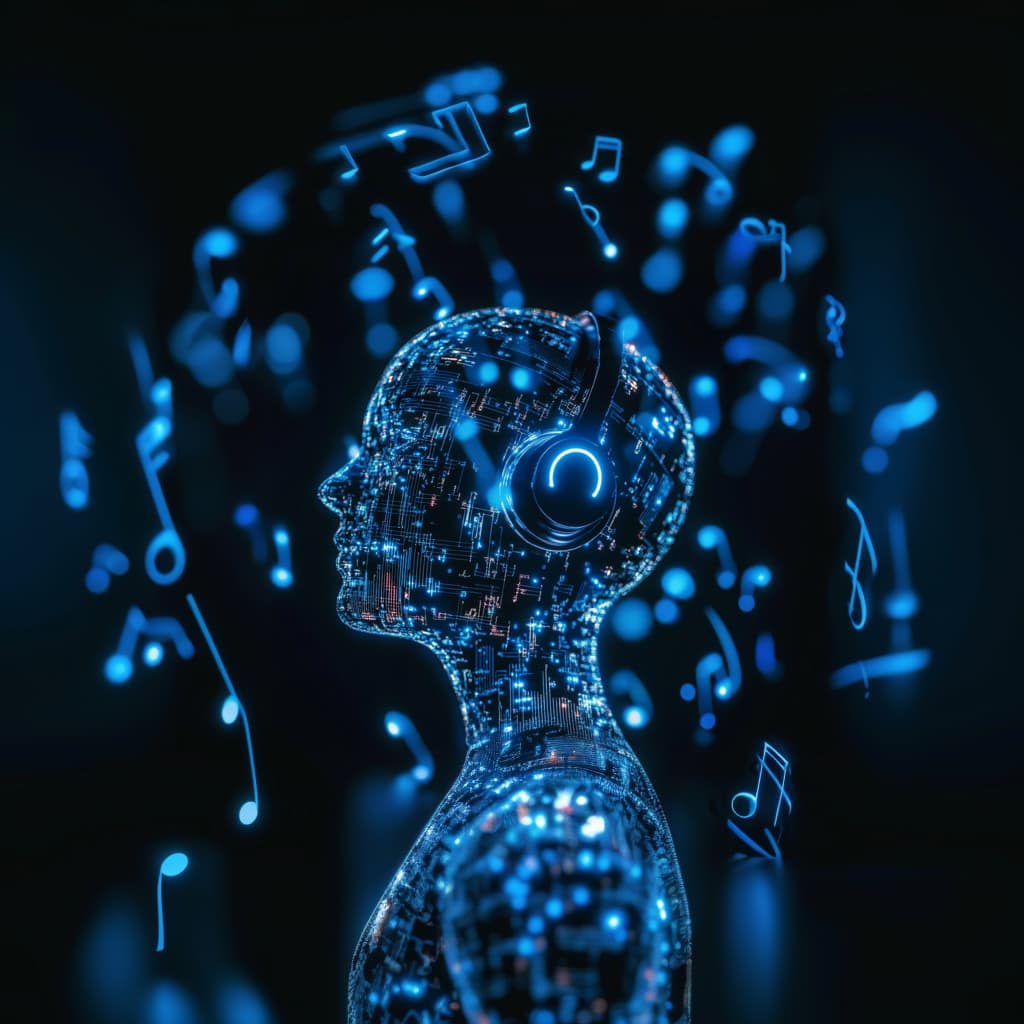The legal maze of AI music: Copyright challenges amid AI surge
In this weekly series, we explore the intersection of AI and music, highlighting innovations, challenges, and prospects. Today: Dr Marina Markellou talks about AI music and the legal framework.
Published on October 6, 2024

Streaming platforms have seen a rise in AI music, generated by AI-powered software like Suno and Udio. The creation of music by machines, however, is still a gray area as there's no specific legislation to regulate this practice. To make sense of the current discussion related to art, law, and technology, I spoke to Marina Markellou, Assistant Professor of Intellectual Property Law at the University of Groningen.
By law, music is considered an intangible asset, and it falls under the broad field of intellectual property, explains Dr. Markellou. Hence, music creators are recognized as "the copyright owners of their own intellectual work as long as their creative content is original." However, amid the rise of AI-generated tracks, it is impossible to establish the human authorship of certain content and whether copyright holders are being respected, and that's where the legal problems start.
Exploring legal implications
According to Dr. Markellou, there are basic problems related to AI music from a copyright perspective. One issue is that companies are using preexisting copyright protected content from artists to train their models, but it's uncertain whether this data is licensed or not. As a result, "copyright holders want to force AI providers to license the content as they accuse these companies of infringing their copyright."
On the other hand, AI companies believe they can use these materials for free based on a specific copyright exception called text and data mining. "It is a circumstance under which a user can freely utilize copyrighted content without asking for permission provided that certain criteria are met," says Dr. Markellou. The current European copyright regime dates back to 2019 and it does not offer conclusive guidelines on how to assess and interpret these cases related to AI training:
"At that time, there was no such thing as AI. Now, we have the EU AI Act, but we are still trying to find out whether we can update the existing copyright regime, at least in Europe, so it can provide the necessary legal security both for artists and AI providers"
Another important issue: If someone uses an AI model to create a song for commercial purposes, it is still uncertain whether this person is entitled to receive copyright protection. There are concerns about the lack of human authorship for the output, "meaning that the intervention by a machine disrupts the connection between the author, as a human person, and the outcome."
Global efforts
Courts worldwide have been dealing with a series of cases related to AI-created artwork. "In the US, the Copyright Office firmly states, for now at least, that they cannot provide copyright protection for outputs without human authorship. In China, two judgments have stated the contrary, recognizing human intervention in the overall process. However, in the EU, nothing has been said," explains Dr. Markellou, emphasizing that there are no general rules. For now, "only the judges and courts can deliver specific judgment for specific cases."
Who's to blame?
There are a few parties involved in the creational process of AI songs: Developers, providers, and users. In case an AI-generated track infringes the copyright of other artists, who should be liable? According to Dr. Markellou, there's no definite answer for that either. When users utilize AI music generators, there are end-user license agreements (EULAs) that should be respected and in which AI providers, most of the times, transfer all the liability to users.
Dr. Markellou believes these EULAs are problematic: "It's a complete abuse. It's not fair that AI companies transfer all the responsibility to users for something that they have created." Further, she stresses that users are also consumers who are protected by the European Consumer Rights relevant regulatory framework. Hence, every case needs to be assessed individually. Therefore, people should be careful:
"When it comes to copyright infringement, good faith does not matter." By deploying generative AI in music creation, "people should know that, for now, they are also going to be liable for any legal issues especially when they use these platforms for commercial purposes," warns Dr. Markellou.
Balancing alternatives
When asked about possible solutions for the current status of AI music, Dr. Markellou highlights two alternatives: create regulations or leave the industry to self-regulate. "It's an international debate, so if we are going to regulate, we need to find a cross-border solution. Or maybe, we do nothing and let the players find a middle ground.”